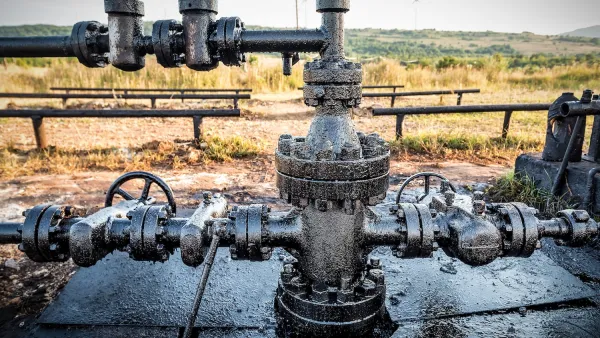Taxpayers, federal agencies, and tribal governments are working to address Arizona's orphaned oil and gas wells, which pose environmental and health risks, while advocates call for greater accountability from oil and gas companies.

Arizona is home to approximately 200 orphaned oil and gas wells, which are abandoned wells with no identifiable owner. These wells leak methane and other pollutants, posing serious environmental and health risks, particularly to nearby communities. They can contaminate groundwater, harm wildlife, and contribute to air pollution. Federal, state, and tribal agencies are responsible for the costly task of locating, capping, and remediating these wells, which are a burden on taxpayers.
Efforts to address orphaned wells include federal funding initiatives like the Biden-Harris administration’s $25 million grant to Arizona’s Department of Environmental Quality (ADEQ) for its Orphaned Oil and Gas Well Program. This program aims to identify and remediate orphaned wells across the state by December 2025, with 80 wells already located and 38 prioritized for plugging. The Navajo Nation has also received $5 million to address 19 wells, alongside a memorandum of understanding with the Department of Energy to further remediation efforts on tribal lands.
Advocates argue that oil and gas companies, not taxpayers, should bear the financial responsibility for plugging orphaned wells. Organizations like the Well Done Foundation emphasize holding companies accountable to prevent reliance on public funds. While the funding helps mitigate immediate risks, lawmakers like Rep. Raúl Grijalva stress that this is not a sustainable solution. The need for systemic reform to ensure companies clean up after themselves remains central to solving the problem.

Planetizen Federal Action Tracker
A weekly monitor of how Trump’s orders and actions are impacting planners and planning in America.

Congressman Proposes Bill to Rename DC Metro “Trump Train”
The Make Autorail Great Again Act would withhold federal funding to the system until the Washington Metropolitan Area Transit Authority (WMATA), rebrands as the Washington Metropolitan Authority for Greater Access (WMAGA).

The Simple Legislative Tool Transforming Vacant Downtowns
In California, Michigan and Georgia, an easy win is bringing dollars — and delight — back to city centers.

The States Losing Rural Delivery Rooms at an Alarming Pace
In some states, as few as 9% of rural hospitals still deliver babies. As a result, rising pre-term births, no adequate pre-term care and "harrowing" close calls are a growing reality.

The Small South Asian Republic Going all in on EVs
Thanks to one simple policy change less than five years ago, 65% of new cars in this Himalayan country are now electric.

DC Backpedals on Bike Lane Protection, Swaps Barriers for Paint
Citing aesthetic concerns, the city is removing the concrete barriers and flexposts that once separated Arizona Avenue cyclists from motor vehicles.
Urban Design for Planners 1: Software Tools
This six-course series explores essential urban design concepts using open source software and equips planners with the tools they need to participate fully in the urban design process.
Planning for Universal Design
Learn the tools for implementing Universal Design in planning regulations.
Smith Gee Studio
City of Charlotte
City of Camden Redevelopment Agency
City of Astoria
Transportation Research & Education Center (TREC) at Portland State University
US High Speed Rail Association
City of Camden Redevelopment Agency
Municipality of Princeton (NJ)





























